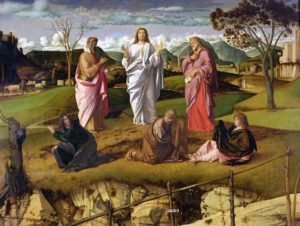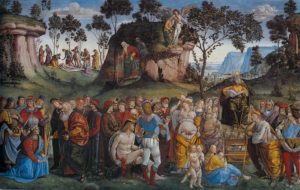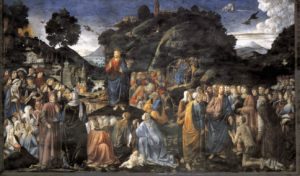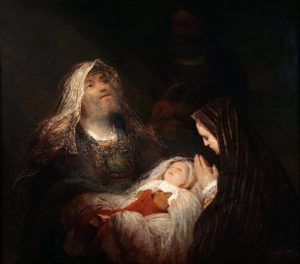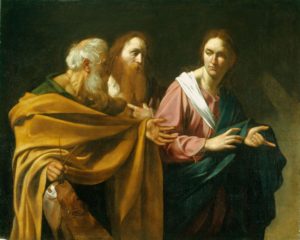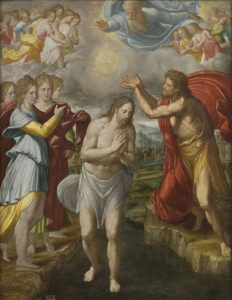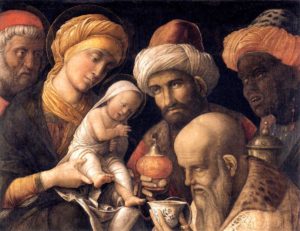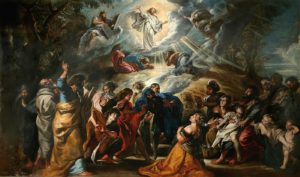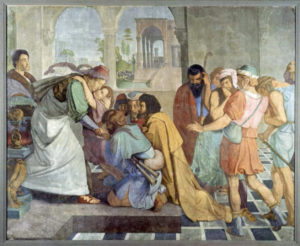Thoughts on Sunday’s Lessons for Jan. 10, 2021
First Reading: Genesis 1:1-5
We remember the Baptism of Jesus this Sunday, and all our readings speak of creation and new life through God in Word and Spirit.
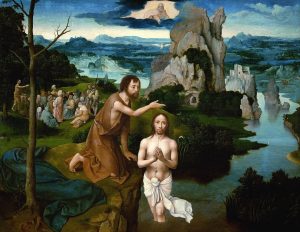
The Baptism of Christ )c.1510-20), oil painting on oak wood by Joachim Patinir (c.1480-1524). Kunsthistorisches Museum, Vienna. (Click image to enlarge.)
Our first reading presents the familiar opening verses of the ancient creation story in Genesis. Glimpsed through its firm monotheism, we can see an emerging idea of God in three persons: God the Creator presides. The Word that God speaks makes the light shine in the darkness. God’s spirit wind breathes over the face of the water. In the beginning God created heaven and earth, and it was good. In the beginning was the Word.
Psalm: Psalm 29
This striking, poetic psalm portrays God’s spirit wind as a majestic and powerful storm. Such a storm, breaking mighty cedars, shooting flames, and shaking the wilderness, might send us running for shelter. But it is also the kind of memorable storm symphony that might lead us outside to feel the rain and the wind touch our faces as the towering clouds roll by. It is an apt image for the God who reigns over all creation, giving us strength and peace.
Second Reading: Acts 19:1-7
In last week’s second reading we heard Paul pray that God would give God’s Spirit of wisdom and revelation to the Ephesians, enlightening their hearts. Now we turn to the Acts of the Apostles, written a generation or two later, and find Luke’s account of Paul in Ephesus, introducing a dozen Ephesians to the Holy Spirit. They had received John the Baptist’s baptism of repentance previously, but had not heard of the Holy Spirit. Now, as Paul baptizes them in the Spirit in Jesus’ name, they joyfully speak in tongues and prophesy as the Holy Spirit comes to them.
Gospel: Mark 1:4-11
Now God’s Spirit moves over the waters again, this time embodied as a dove coming down while Jesus emerges, dripping, from Jordan’s water, baptized by the prophet John. Jesus looks up, sees the heavens torn apart and the Spirit descending like a dove, and he hears God’s voice from above, telling him that he is God’s Son, God’s Beloved, in whom God is pleased. Before all this, John defers to Jesus’ greater power to baptize with the Holy Spirit. He proclaims that Jesus is the more powerful one who is coming after him and whose sandals he is not worthy to untie.

